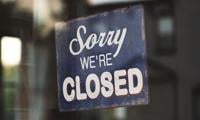Real estate isnât just about bricks and mortar â itâs about human behaviour. Like fashion or fitness crazes, housing markets catch fire, peak, and then cool, driven as much by psychology as by economics.
2017: The over-ask craze
I remember finishing a CrossFit class when I overheard a woman chatting with a friend. Sheâd just managed to buy a home after losing out on several offers. Her friend asked gleefully, âHow much over asking did you pay?â The answer â also gleeful â was â$110,000.â In 2017, this was the norm: paying eye-popping amounts over the list price wasnât shocking; it was expected.
2021: The pandemic frenzy
Fast forward to late 2021. I was hosting an open house at a vacant property and looked outside at the lineup: 50 groups of people, patiently waiting, masks on, inching forward under COVID restrictions. Each one was hoping to squeeze into a market that seemed unstoppable. Bidding wars werenât the exception â they were the rule.
2025: The cool-down
And now? A home in my own neighbourhood has been on and off the market for months without selling. The frenzy has cooled, the lineups are gone, and reality has returned.
What makes the market catch fire?
It would be easy to blame mortgage rates alone â cheaper borrowing fans the flames, higher rates cool them. But thatâs only part of the story.
Economics: Low rates, limited supply, and rising populations push demand.
Psychology: Fear of missing out drives buyers to act quickly, while herd mentality keeps them bidding higher with each home sale bidding the next one even higher.
Media: Headlines amplify the urgency, making housing the number-one topic in coffee shops, offices, and yes, gyms. When influencers on non-Real Estate podcasts have shows on home sales you know the trend is moving upward.
The social proof effect
Trends donât spread in a vacuum. They rely on social proof.
- When a celebrity buys a modern-day castle, it sparks aspiration with the readers feeling like it is the right time to buy a home.
- When someone in your circle â the savvy investor, the colleague who âalways knowsâ â buys, it creates legitimacy.
- These early adopters give everyone else âpermissionâ to follow. Soon, the snowball is rolling, and suddenly buying a house isnât just a financial decision â itâs the social event of the season.
Human nature and greed at work
Housing markets donât just move on math; they move on emotion. We buy because our neighbour bought, we sell because our cousin did, and we hold on because headlines tell us itâs only going up. Fear of missing out (FOMO) is the spark â greed is the gasoline. Greed puts blinders on, pushing people to chase deals long after the warning lights are blinking.
Right now, the frenzy has cooled: rates are higher, values have reset, and buyersâ attention is elsewhere. However, history suggests that the early adopters who step in during the lull will look like geniuses when the next wave rolls in.
If you are keen to jump in on what looks like the âground floorâ before the values increase, my recommendation is to contact a mortgage broker and have a pre-approval completed, and reach out to a local, full-time realtor and get moving.
Leave the FOMO to those who choose to wait.
Error! Sorry, there was an error processing your request.
There was a problem with the recaptcha. Please try again.
You may unsubscribe at any time. By signing up, you agree to our and . This site is protected by reCAPTCHA and the Google and apply.
Want more of the latest from us? Sign up for more at our newsletter page.





























To join the conversation set a first and last name in your user profile.
Sign in or register for free to join the Conversation